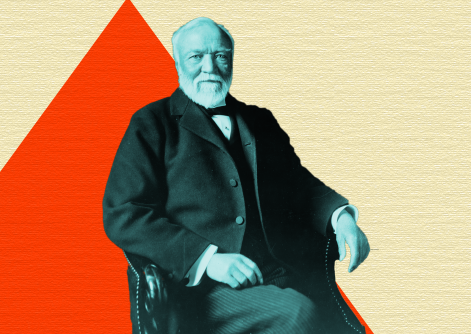USA Today suggests in its reporting that the bishops are reacting to heat from Democrats:
The hierarchy's pushback comes after liberal Catholics in Congress and progressive activists challenged the bishops to resist the GOP budget proposals with the same vigor that they have challenged the Obama administration's contraception mandate and its perceived violations of religious freedom.
One lay Catholic defending Ryan is Marc Thiessen, now a Washington Post columnist but, when I first met him, the host of an ecumenical Bible study for Bush White House staffers led by a Catholic priest. In his latest column, Thiessen argues that it’s not Ryan’s budget cuts that are “unjust and wrong,” it’s the attack on Ryan by the chairman of the bishops’ Committee on Justice and Human Development, Bishop Stephen Blaire of Stockton:
Ryan’s budget can only be viewed as a “cut” when compared with the unprecedented levels of spending unleashed by President Obama, who has increased our national debt by more than $4 trillion in just 31 months -- a new land-speed record for fiscal profligacy. In criticizing Ryan’s spending “cuts,” Bishop Blaire is effectively arguing that these unsustainable spending increases under Barack Obama are the new floor for what constitutes “social justice.” In this view, even a 20 percent increase in spending relative to 2008 is a violation of the “moral criteria” of the Catholic Church. That is ridiculous.
Thiessen echoes Ryan's argument that a debt crisis will “hurt the poor the first and the worst.” And the two men have their own bishop to cite -- the bishop of Rome, Pope Benedict XVI, who was asked about the problem in an interview a couple of years ago. When journalist Peter Seewald observed that “the new debt in the United States government budget is pegged at 1.56 trillion dollars, the high point of all time . . . generations to come are being burdened by colossal debts. Isn’t that also an insanely big moral problem?” the pope replied,
Naturally, because we are living at the expense of future generations. In this respect it is plain we are living in untruth. . . . [T]he huge debts are meanwhile treated as something that we are simply entitled to. . . .
Bishop Blaire has written several letters this month to various congressional committees. The word "debt" doesn't appear in any of them. Nor does he address the issue of expanding welfare statism that Pope John Paul II raised in his encyclical Centesimus annus, also quoted by Ryan and Thiessen:
By intervening directly and depriving society of its responsibility, the Social Assistance State leads to a loss of human energies and an inordinate increase of public agencies, which are dominated more by bureaucratic ways of thinking than by concern for serving their clients, and which are accompanied by an enormous increase in spending.
Contrast these two popes’ thoughtful words with the dime-a-dozen-lobbyist prose offered to Congress by Bishop Blaire (and written, I'd wager, by some lowly staffer):
The Catholic bishops urge you to protect funding for programs that serve poor and vulnerable people, such as Housing for the Elderly (Section 202) and People with Disabilities (Section 811), Housing for People with AIDS (HOPWA), Veterans Affairs Supported Housing (HUD-VASH), McKinney-Vento Homeless Assistance, and Tenant- and Project-based Rental Assistance….
I don’t mean to condemn any bishop’s good intentions or imply that the bishops have nothing to offer the budget debate. For example, when they observe that federal agricultural programs tend to favor big agribusiness over aid to the poor, I’m sure they’re right.
But why, after more than a century of welfare-state history (which began in Catholic-hating Otto von Bismarck’s Prussia), can so few bishops figure out that big government programs nearly always end up favoring big powerful interests over the needy?
Why, after a century of corrupt government programs, to say nothing of rapacious Marxist regimes, are so few bishops skeptical about pols who claim to govern purely out of love for the poor?
Two news items provide helpful context. First, America’s Catholic bishops should look at the suffering of Orthodox bishops in Greece. That nation has an even more bloated central government, now melting down in its own debt crisis, and it also has a Greek Orthodox Church with much closer ties to the central government than America’s Catholic Church has to the feds.
As Reuters reports, the Greek Church has transferred 96 percent of its property to the state in the last decade and in return now has more than 10,000 priests’ salaries paid by the government. But surprise:
Close links between the Greek state and the Orthodox Church are turning from a blessing for the clergy into a curse as the debt-laden government struggles to fund the [church], just as impoverished Greeks need its charitable work most.
. . . "The crisis does not only affect our charities' functioning, it also threatens their very existence," Bishop Efstathios of Sparta said earlier this month. State pension funds had stopped paying contributions to the charities he runs for almost a year, he complained.
Reuters does find a silver lining: “the crisis is offering the church a chance to reduce its financial dependence on the state.” That would warm the heart of old-school Catholic Democrat Daniel Patrick Moynihan, who warned back in 1980, when he saw America’s Catholic Charities tip into majority funding by government, that “there cannot be any outcome to that encroachment save governmental control.”
Moynihan was more gifted with prophecy than the bishops, most of whom were amazed to see the government’s recent takeover of health care produce consequences they now bemoan.
The other news item that provides context to the budget dust-up comes from Kenya, where Fr. John Webootsa, a local priest who serves in Nairobi’s Korogocho and Dandora slums, just received the Franco-German Human Rights Award. He didn’t win it for haranguing the Kenyan legislature about Section this and that. He won it for establishing a “community business start-up fund” that has so far disbursed micro-loans to more than 300 people, “mostly women and youth to set up small businesses such as groceries, hair salons,” etc.; and for setting up a medical dispensary and a low-cost Informal School for 850 pupils.
Those are the kinds of good works that churches in America have long accomplished. They just may be better things for bishops to write letters about than federal budgets.
UPDATE: Several dozen professors and staff at Georgetown University have also attacked Paul Ryan on Catholic social teaching grounds. For responses, see papal biographer George Weigel's "Ryan vs. Georgetown" and Thomas Peters' "Paul Ryan Goes to Georgetown." Peter Wehner adds that today's sky-is-falling prophets who decry Ryan's proposed budget made similar prophecies of doom over welfare reform in 1996, but the Apocalypse didn't come. William McGurn responds to the bishops with a 1945 quotation from Dorothy Day, founder of the Catholic Worker movement and a hero to left-of-center Catholics: "We believe that Social Security legislation, now billed as a great victory for the poor and for the worker, is a great defeat for Christianity. It is an acceptance of the idea of force and compulsion."
UPDATE II: Bishop Blaire publicly objected yet again to the "Paul Ryan budget" after the House Budget Committee passed it. His latest epistle makes the smallest of steps toward acknowledging irresponsible federal spending by nodding in the direction of "deficit reduction and fiscal responsibility efforts," but Blaire's letter still avoids the word "debt."






It would behoove the Bishops to look carefully at Ryan’s budget before criticizing it. In Baltimore, Archbishop Edwin O’Brien, whom I hold in high regard, closed Catholic schools in some of the poorest areas of the city leaving many with no choice but to send their children to failing public schools. This was done in the name of fiscal responsibility. Isn’t that the same thing Ryan’s budget attempts to accomplish?